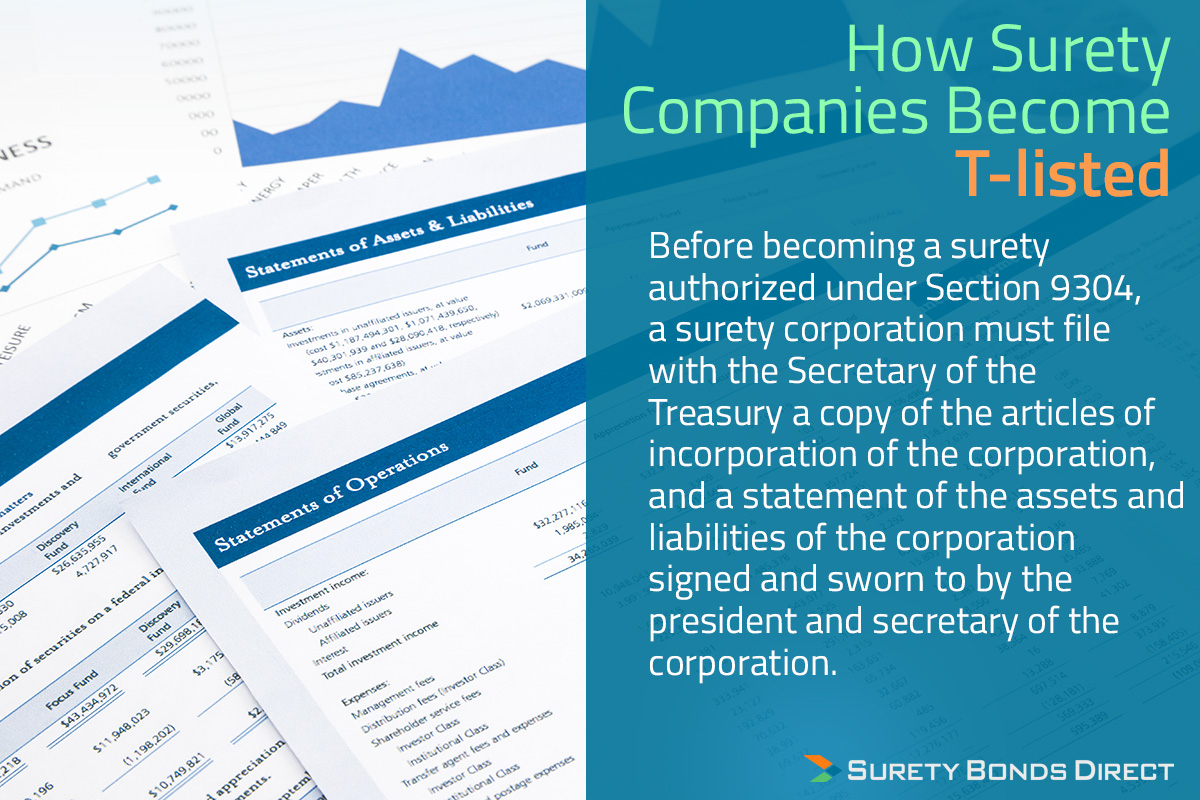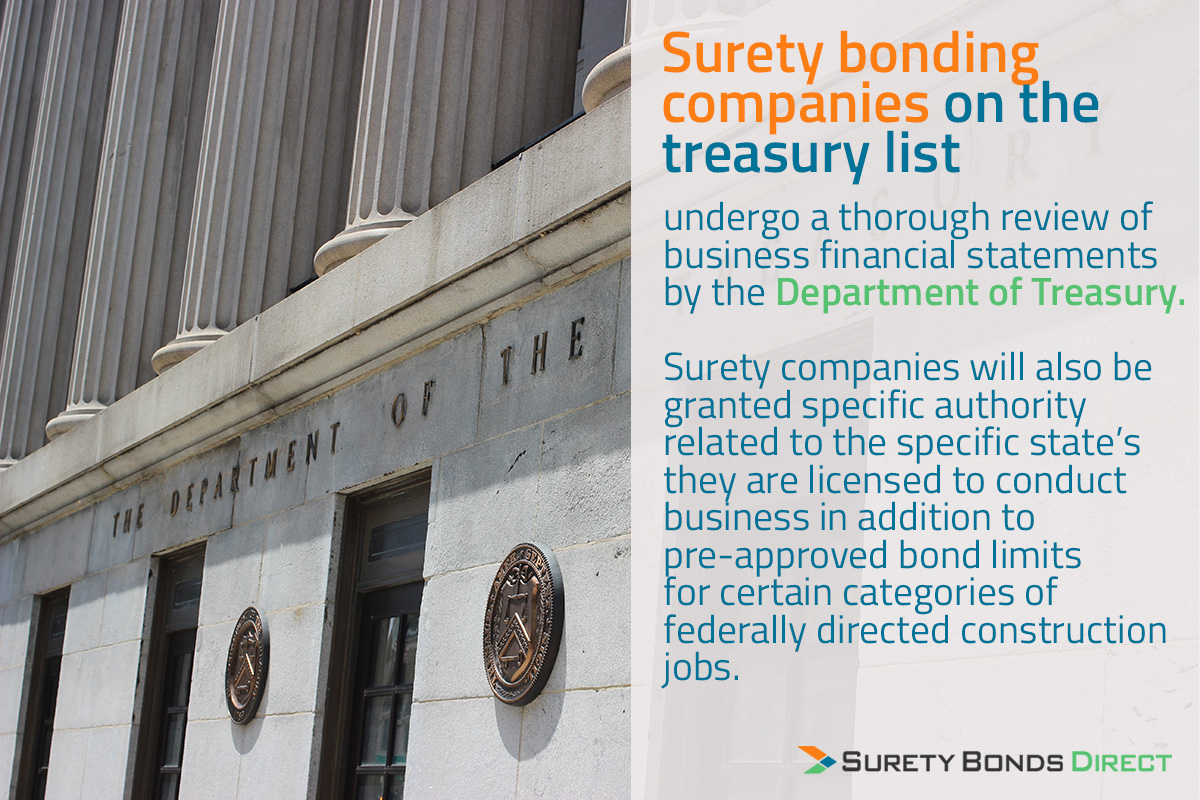Treasury Listing 101
When researching a surety bond that must be provided, many buyers learn that the entity requiring the surety bond (the "obligee") will state that the surety bond must be furnished by a Treasury Listed Surety or Insurance Company, sometimes also referred to as a “T-Listed” company. The purpose of this requirement is to ensure that the company backing your bond has met certain financial criteria set by the federal government. These authorized providers are in effect approved to write bonds for federal government contracts or other projects.
Surety bonding companies on the treasury list undergo a thorough review of business financial statements by the Department of Treasury. Surety companies will also be granted specific authority related to the specific state’s they are licensed to conduct business in addition to pre-approved bond limits for certain categories of federally directed construction jobs.
Surety Bonds Direct only works with Treasury-Listed Sureties
How Does Treasury Listing Process Impact Surety Bonds Buyers?
If you are working with an agent or broker, it is generally a good idea to double check to ensure the surety company backing your bond is treasury listed. Note that the broker will not be treasury listed, only the surety company that the broker selects to write your surety bond. Most large volume online brokers such as Surety Bonds Direct work exclusively with treasury listed companies so you are in good hands. However, if you are purchasing a surety bond from a local commercial insurance agent, it is wise to confirm that the surety company that would be backing your surety bond is, in fact, treasury listed before purchasing the bond.

The Role of the US Treasury Department
The Bureau of the Fiscal Service administers the surety bond program for the federal government under Section 31 U.S.C. 9304-9308 for companies who wish to: directly write federal bonds, reinsure federal bonds, or be recognized as an Admitted Reinsurer for the companies who directly write or reinsure federal bonds. The Treasury Department Circular 570 offers a complete list of companies that write or reinsure federal bonds, as well as Admitted Reinsurers for those companies. Here is a link to the updated list of Treasury Listed and Certified Companies.
How Surety Companies Become T-listed
Before becoming a surety authorized under Section 9304, a surety corporation must file with the Secretary of the Treasury a copy of the articles of incorporation of the corporation, and a statement of the assets and liabilities of the corporation signed and sworn to by the president and secretary of the corporation.
The Secretary may authorize in writing a surety corporation to provide surety bonds under Section 9304 if the Secretary determines that the articles of incorporation of the corporation authorize the corporation to do business described in Section 9304(a)(2), the corporation has paid-up capital of at least $250,000 in cash or its equivalent, and the corporation is able to carry out its contracts.

The secretary may revoke the authority of a surety corporation to do new business if the secretary decides the corporation is insolvent or is in violation of regulations. Further, the secretary may investigate the solvency of a surety corporation at any time and may require additional security from the bonded entity required to provide a surety bond if the Secretary decides that a surety corporation no longer is sufficient security.
A surety corporation providing a surety bond may not provide any additional bond under that section if the corporation does not pay a final judgment or order against it on the bond, and no appeal or stay of judgment or order is pending 30 days after the judgment or order is entered.
The Fine Print
When a law of the United States Government requires or permits a person to give a surety bond through a surety, the person satisfies the law if the surety bond is provided for the person by an authorized corporation.
Each surety bond must be approved by an official of the Government required to approve or accept the bond. The official may not require that the surety bond be given through a guaranty corporation or through any specific guaranty corporation.
When a person or business entity required to provide a surety bond given to the United States Government becomes insolvent or dies having assets insufficient to pay debts, the surety, or the executor, administrator, or assignee of the surety is obligated to pay the US government the amount due under the bond. The surety has the same priority to amounts from the assets and estate of the bonded entity as are secured for the government and may personally bring a civil action under the bond to recover amounts paid under the bond.


